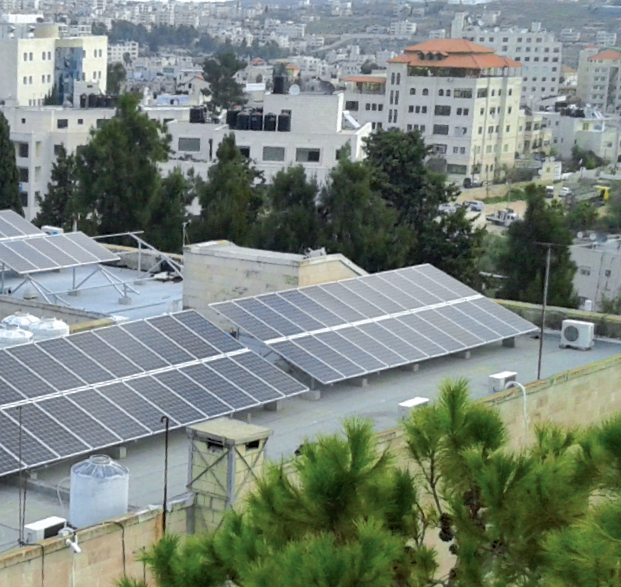Helping vulnerable areas adapt to climate change by installing solar photovoltaic systems
The Brussels-Capital Region contributes to the international efforts to fight climate change. The region signed a convention with Enabel, the Belgian development agency, to support the fight against climate change in developing countries. With the extra funding of the Brussels-Capital Region, the Belgian development agency will carry out concrete activities to help vulnerable areas to adapt to climate change or mitigate its impact. One of the activities is the installation of solar photovoltaic systems for some fifty schools in the Palestinian territory.
The objective of the project is to facilitate the access to green and reliable electricity for Palestinians through the installation of some 350 kilowatts of photovoltaic systems and the provision of appropriate training in approximatively 50 schools, built either with Belgian funding or through the Joint Financing Agreement in the Palestinian territory.
Currently, the Palestinian territory is importing most of its energy needs: 88% of electricity is imported from Israel; the rest (12%, or 0.45 TW) is covered by a Palestinian power plant in Gaza and by imports from Egypt (to Gaza) and Jordan (to Jericho). Apart from the sun, wind and biogas, all actual or potential sources of energy that could be used for the production of electricity are under Israeli territorial control (hydroelectricity, tidal energy) or fiscal control (fossil fuels). This situation comes with both an environmental and a financial cost.
Meanwhile, solar radiation in the region is high: studies show that each kW of photovoltaic panels installed produce an average of 1,700 kWh/year. The development of photovoltaic systems has therefore, a great potential, and leading by example in schools could have a greening impact that is not limited to the schools themselves.
The installation of 350 KW of solar panels is expected to produce 595,000 kWh/year, which would reduce CO2 emissions by 443 tons per year. It is also expected to reduce the annual energy bill of the Palestinian Authority by € 95,200. If these savings could be fully reinvested in new solar panels, this would allow the Ministry of Education and Higher Education to double its production of green energy every five years.
Dernières actualité de ce projet
Pas d'actualité

